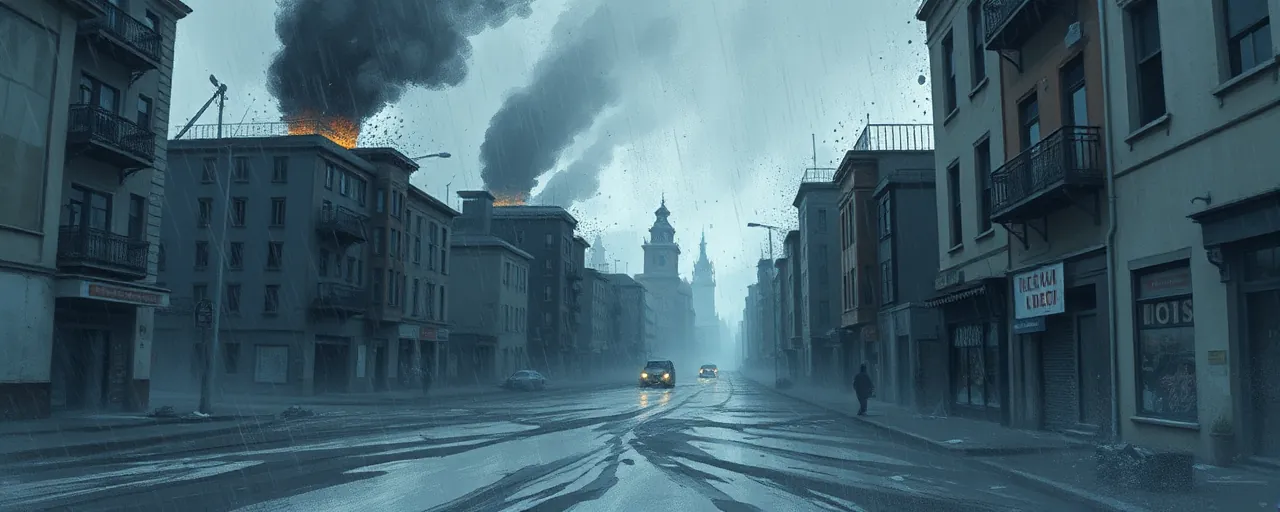A Devastating Wake-Up Call
The missile strike on Sumy, Ukraine, left 34 dead and over 100 wounded, a gut-punch to anyone who believed the Russia-Ukraine war might be winding down. Homes crumbled, families shattered, and a city’s spirit tested yet again. This wasn’t just another headline; it was a stark reminder of the human cost of inaction, a plea for the world to stop looking away.
For years, Ukraine has endured relentless aggression, its people caught in a struggle for survival against a neighbor bent on domination. The attack on Sumy underscores a truth too often ignored: peace isn’t a gift bestowed by goodwill alone. It requires resolve, clarity, and a commitment to justice that refuses to waver in the face of brutality.
Advocates for diplomacy, myself included, feel the weight of this moment. The instinct to negotiate, to seek compromise, is noble, but it falters when one side sees talks as a stall tactic. Russia’s actions demand a response that prioritizes Ukraine’s sovereignty over fleeting promises of ceasefire.
The High Price of Hesitation
Russia’s war machine thrives on division and delay. The Kremlin’s rhetoric, cloaked in claims of protecting its own, has long justified territorial grabs, from Ukraine to whispers of eyeing Estonia next. Historical patterns reveal a playbook: sow fear, distort truth, and exploit any crack in global unity. Sumy’s scars prove this strategy’s deadly toll.
Sanctions have hit Russia hard, no question. Oil prices for Urals crude dropped to $50 a barrel, and the ruble’s value keeps sliding, squeezed by a war economy bleeding cash. Yet, Moscow pivots to China and India, dodging the West’s grip. Enforcement lags, and loopholes persist, letting Russia skirt the full weight of accountability.
Some argue for softening sanctions or offering concessions to lure Russia to the table. That approach misreads the moment. Conceding ground rewards aggression, emboldening a regime that thrives on testing limits. Ukrainian resilience, backed by NATO’s aid, shows strength works better than appeasement ever could.
The humanitarian crisis deepens this urgency. Ten million displaced, 12.7 million needing aid—numbers that numb the mind but break the heart. Winter looms, and millions lack heat or clean water. Sumy’s tragedy is one of countless, each demanding we act not just with words but with unwavering support for Ukraine’s fight.
Diplomacy hasn’t failed, but it’s floundered. Talks stall as Russia clings to maximalist demands, betting on Western fatigue. The U.S. push for peace is earnest, yet mixed signals—some envoys floating concessions, others standing firm—muddle the message. Clarity matters now more than ever.
A Path Forward, Rooted in Justice
Peace in Ukraine starts with a simple truth: Russia’s aggression must face consequences, not compromise. Strengthening sanctions, closing trade loopholes, and boosting aid to Ukraine aren’t just tactics; they’re moral imperatives. Every dollar, every weapon sent to Kyiv saves lives and signals resolve.
The world watches, from NATO capitals to Global South nations wary of Western motives. Engaging those skeptics means listening, not lecturing, and proving through action that supporting Ukraine upholds a shared principle: no nation should redraw borders by force.
Sumy’s pain is a call to action, not despair. Ukraine’s fight is for more than territory; it’s for the right to exist, to thrive, free from fear. Backing that fight means rejecting half-measures and standing firm, because justice delayed is justice denied.
